3 Reasons Why Your Homestead Needs a Barn Cat
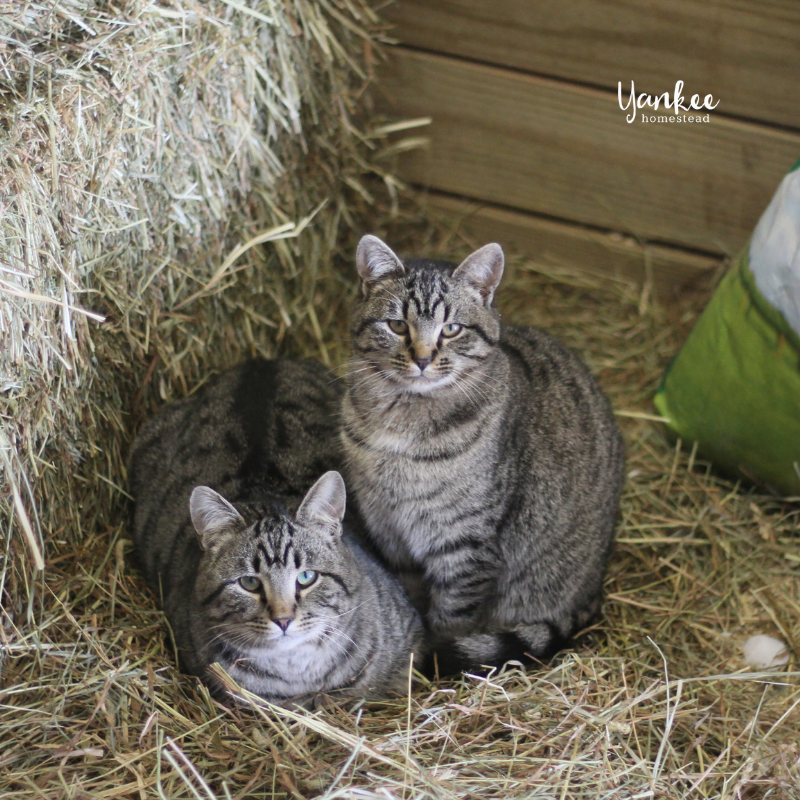
Plan your best garden with simple, step-by-step instructions!
This post may contain affiliate links, which means I make a small commission at no extra cost to you.
See my full disclosure here.
Are you considering adding a barn cat to your homestead? You should! Today Mr. Native Texan presents three reasons why every homestead needs a barn cat. He’ll also address three common concerns about introducing barn cats to the homestead.
Every homestead includes a certain variety of animals and every homesteader has to decide which animals those will be. Of course, every homestead is different, but there are certain animals that, in my opinion, should always be included: chickens and barn cats.
Chickens are one of the most versatile animals for the homestead, providing a variety of benefits: eggs, meat, pest control, garden preparation, entertainment, and more.
Today, however, let’s focus on barn cats.
First of all, there’s a reason I refer to them as “barn” cats. The cats I’m talking about aren’t the same fluffy house cats you’ll find in your average suburban home. The cats I’m referring to should come from a line of cats that have been raised on farms, living outside.
Why do I suggest barn cats for the homestead? One word: rodents.
3 Reasons Why Your Homestead Needs a Barn Cat
Rodents can cause such trouble on the homestead that they actually make up all three reasons why any and every homestead needs a barn cat.
1. Rodents in the House
A few years ago, we lived on a three-acre homestead that backed up to another 15-20 acres of land used by a farmer for a breeding herd of cattle. Once or twice a year, the farmer mowed this land. He didn’t actually own the land, and in exchange for its use, had an agreement with the land owner to keep the grass from getting out of control.
Every time he cut the grass we would end up with mice in the kitchen. Every time! We came to hate mowing days. The fields would look great, but our pantries….not so much.
We tried various methods of handling the problem. We bought different types of traps, put peppermint oil on cotton balls around the pantry, and even tried those hypersonic sound emitters that you plug into an outlet to ward off the rodents.
Finally, we got serious and invested in airtight containers for all our pantry staples. We became vigilant about what was stored in the pantry and how it was stored.
While each of those methods was successful to some extent, they still didn’t eradicate the problem. That’s when we decided: our homestead needs a barn cat! Or in our case, several cats.
Neither Kathleen nor I are “cat people”. We both prefer dogs, and Kathleen is actually highly allergic to cats.
So we never had a cat. We weren’t sure we wanted one now, but we knew we needed to do something about the maddening mouse trouble.
Kathleen’s parents live a few hours away in a major farming area with a number of connections to local farmers. They came across a farm with free kittens and we ended up with two of them: a male and a female.
We brought the cats home, acclimated them to our homestead, and after a few months had full-functioning rodent patrol officers at our service. I can’t even begin to describe the difference the cats made. Hallelujah!
That’s not to say we never saw a mouse in the house again, but their presence was greatly reduced.
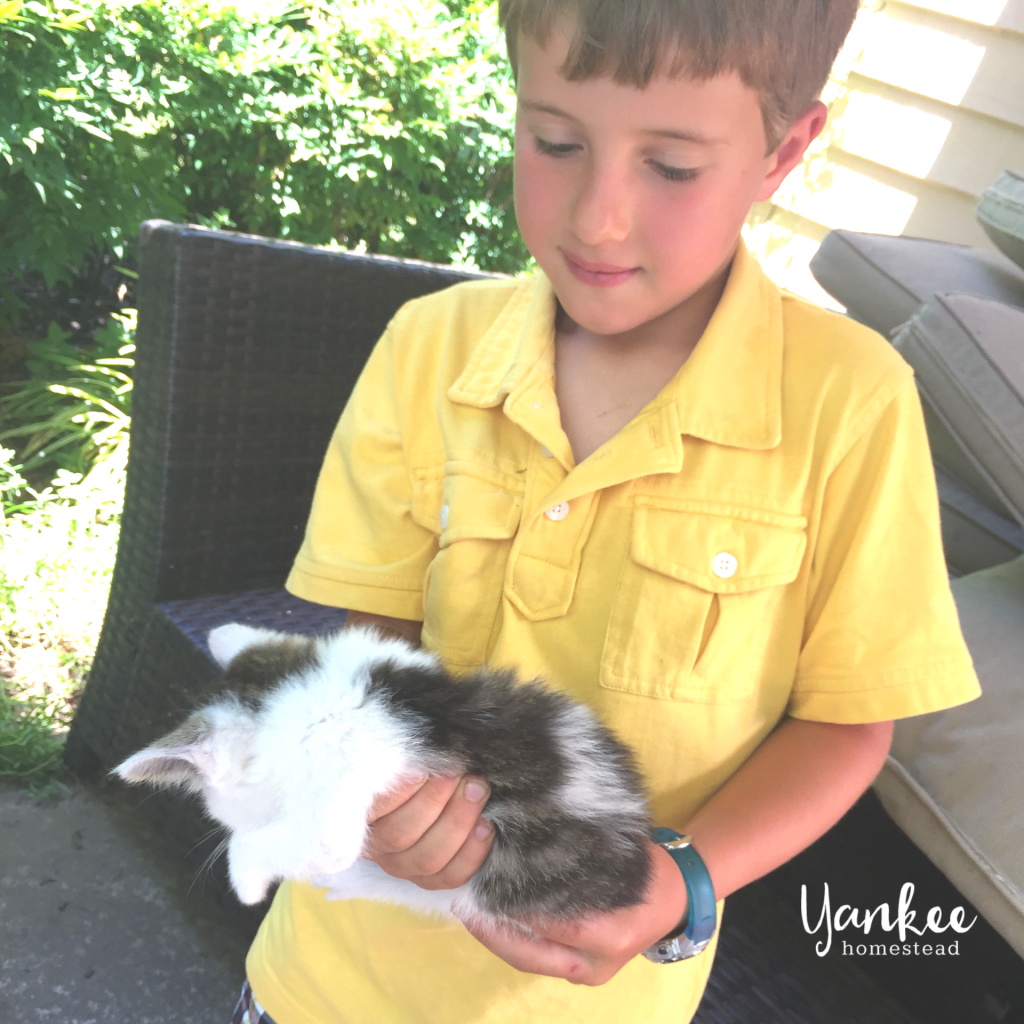
2. Rodents in the Feed
In addition to keeping mice out of the house, our cats also keep mice, voles, and other rodents out of our livestock feed.
I tend to keep all of the feed together. Dog food, cat food, pig food, rabbit food, and chicken food are all stored in the same general area. As you can imagine, this spot tends to attract mice.
Mice droppings in your feed isn’t good for the animals, so we obviously take pains to prevent it as much as possible. Obviously, keeping the area as clean as possible and keeping feed bags closed is the first step to avoiding rodent issues, but having cats around is a close second.
I like to feed my cats near where I store the livestock feed. This is a great way to keep the rodents at bay.
Furthermore, I do feed my barn cats, but not as much as I would feed a house cat. I want to keep them a bit hungry to encourage them to hunt!
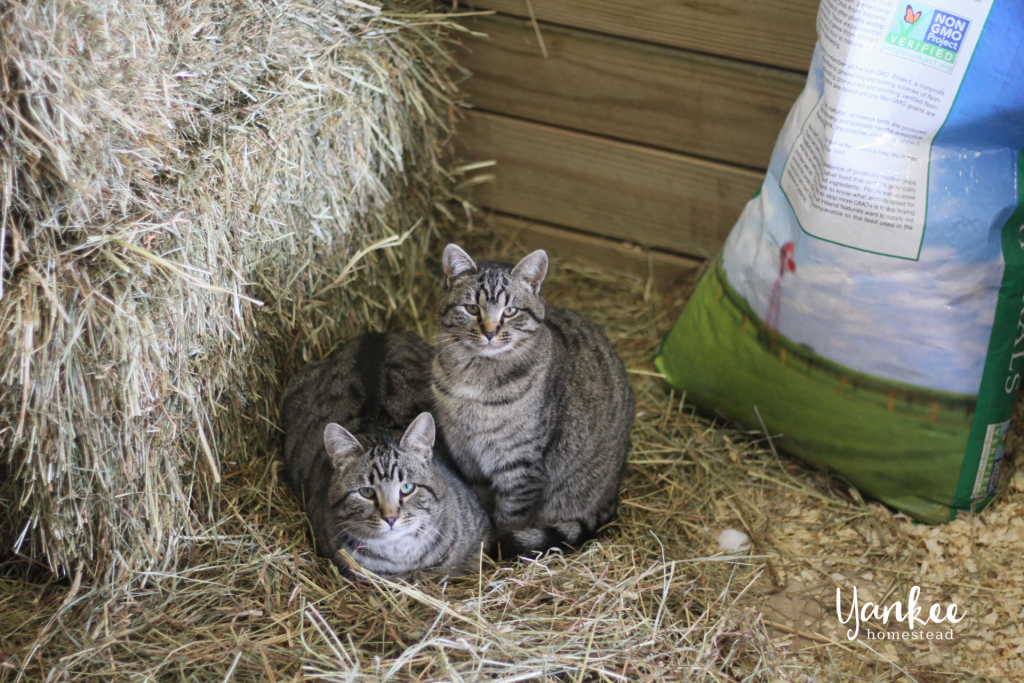
3. Rodents in the Garden
Do you have voles or bunnies or any other rodents who like to nibble on the tops or bottoms of your veggies? Once again, your homestead needs a barn cat.
At our former property, the three-acre homestead, voles would dig up into our raised beds. It drove Kathleen crazy! Voles would make annoying tunnels in the beds and what was worse, they would chew on root veggies like carrots.
Our current 20-acre farm has voles galore out in the fields. We’re talking an entire vole community with holes and tunnels crisscrossing the vast landscape. Bunnies are present as well.
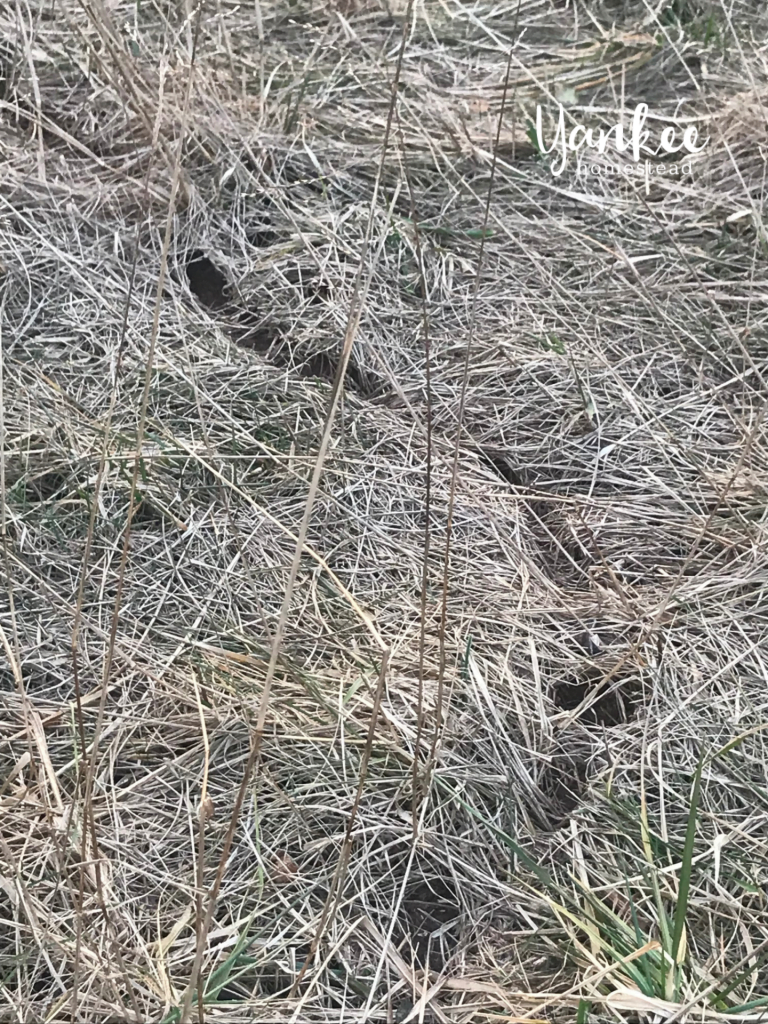
Once we added cats to our former homestead, the vole trouble in the garden went away. And on the new farm, we had cats from the get go. Despite the robust vole population, they’ve never bothered our garden crops.
Note: we lined the bottom of each raised garden bed with chicken wire (hardware cloth is better, but chicken wire is what we had on hand) to deter digging rodents. But the sweet potatoes grow directly in the ground, in the far garden right out next to Vole Central, and we’ve had no problems there, either.
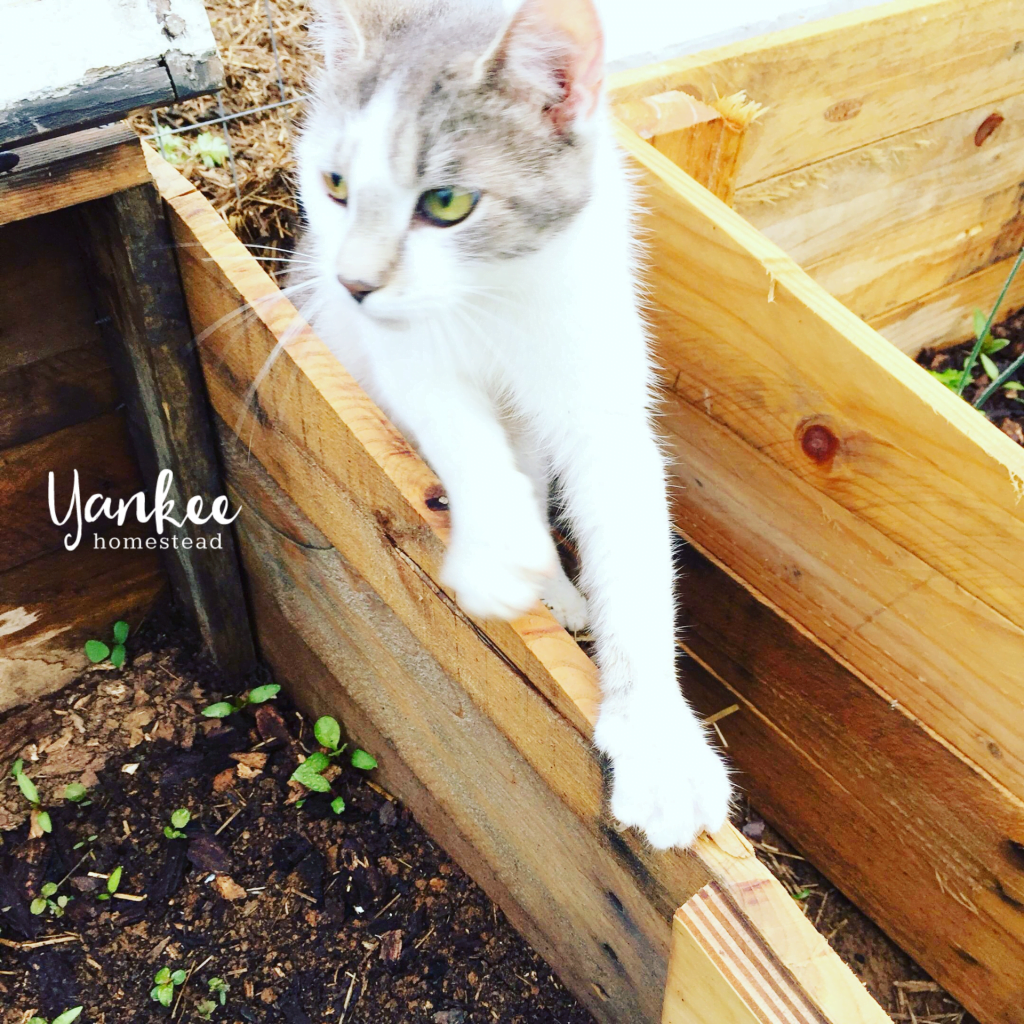
Barn Cat Concerns
Now, there are a few concerns most homesteaders have when we talk about introducing cats to the homestead. I’ll address each below:
1. Will cats eat my chickens?
The biggest concern most homesteaders have when considering cats is the fear that cats will eat their chickens (or ducks). While I wouldn’t say the concern is zero, I suspect it’s much lower than what most of us might imagine.
To our knowledge, we have never had a cat kill a chick, chicken, duck, or duckling. Now, there are reasons for that. We go to great lengths to protect our livestock from predators, even the predators we introduce to the homestead.
We keep our brooders covered and enclosed and we lock up our flocks at night. These measures tend to thwart the efforts of most predators.
In fact, for a long time in the early spring, we had a tom cat whose favorite spot on our farm was a board that went across the top of our brooder near a heat lamp. He would doze in the warmth of the light and peer down on the chicks.
That cat never tried to get into the brooder. It’s as if he knew he’d found a good spot and didn’t want to jeopardize it with a temporary pleasure (oh that men would learn more from the animals we steward!). Again, keep in mind that the brooder was completely enclosed.
While we do protect our baby chicks, we also have quite a few free-ranging chickens and the cats don’t seem to bother them. Probably because they have access to so many voles!
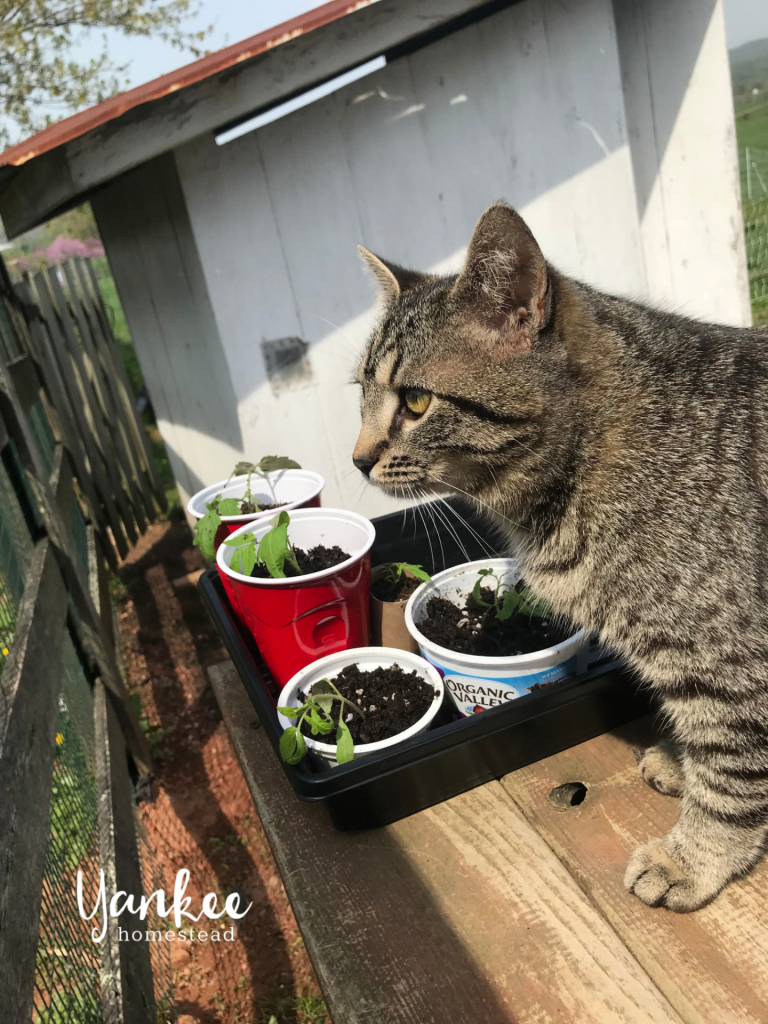
2. Won’t a cat run away if it lives outside?
I can’t tell you that your cat won’t run away. It does happen occasionally. Tom cats are notorious wanderers, and can run into trouble on their prowls. We’ve had two excellent toms get struck and killed by passing cars.
However, if you’re feeding and caring for the cat and it’s been properly acquainted with the homestead, there’s a good chance it will stick around. We’ve had very few cats run away.
That said, I would suggest getting more than one cat. This way, if one runs off (or finds another tragic end) you’ll still have other cats to perform their duties.
Plus, while cats are typically more solitary than dogs, they still seem to enjoy each other’s company, especially on a cold winter evening.
3. I have dogs, isn’t that problematic?
The answer here is—it depends on the dog, its breed, and its training. Most of our cats have been able to hold their own with dogs. I suspect it’s because we’ve always acquired cats from farm stock rather than typical house cat breeds.
There are certain breeds of dogs that tend to work better with cats. For instance, we currently have two dogs: an Anatolian Shepherd and an Australian Shepherd.
Our Anatolian Shepherd, a livestock guardian dog, gets along great with the cats. There were several evenings last winter when I’d open the front door to find them curled up together on the porch keeping warm.
However, our Australian Shepherd and the cats have more of what I’d call a love/hate relationship. The dog loves to chase the cats around in an attempt to herd them and the cats get exasperated. We have certain cats that tolerate her more than others.
Previously, we had a Weimaraner (a bird dog) that was somewhat problematic with cats—and chickens, for that matter. I wouldn’t recommend a Weimaraner for any homestead. Although Trooper never killed a cat or kitten at our house, he did put an untimely end to some kittens at my in-laws’ house during a visit.
That said, the safety of your animals is typically up to you. If you suspect trouble from your particular dog, then you’ll obviously want to take proper measures to make sure the dog never has unsupervised access to any of your livestock, including cats (and especially kittens).
I’m sure there are other concerns you may have about adding barn cats to your homestead. Feel free to comment on them below and I’ll be glad to answer your questions to the best of my knowledge.
Your Homestead Needs a Cat Now!
My overall opinion is that every farm or homestead needs barn cats to prevent rodents from entering your home, contaminating your livestock feed, or disturbing your gardens. Thankfully, farm cats are pretty easy to find. Someone is always trying to give away kittens (As I type this, we have a few that are ready go to good homes).
So go track down a few barn cats and watch them work their magic on your homestead!
Do you have barn cats? Why or why not?
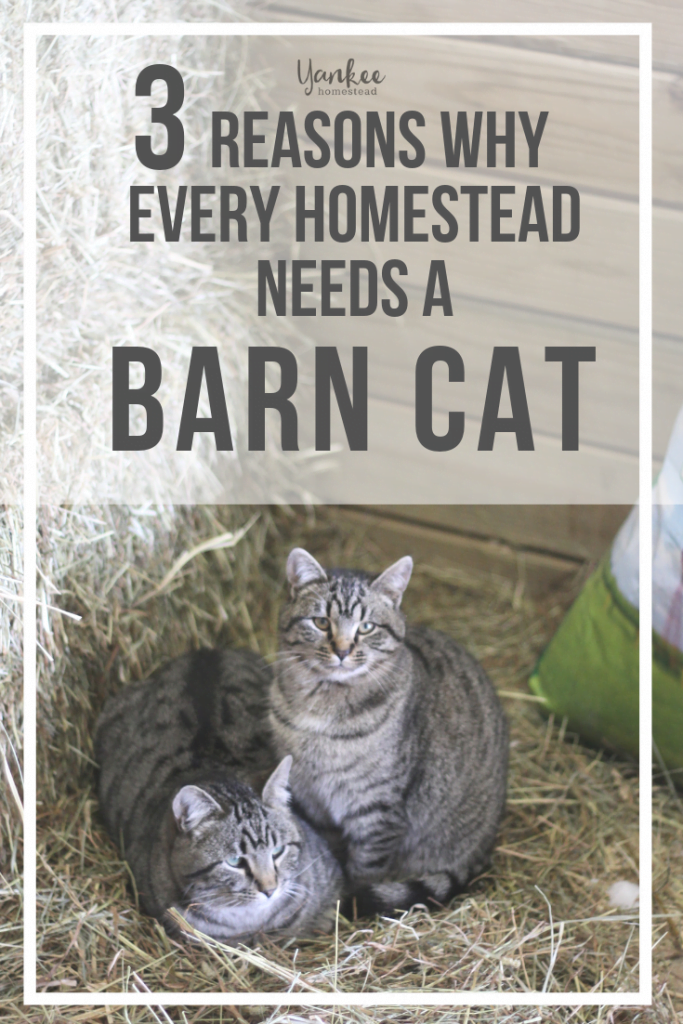

Sign up NOW for my best tips delivered weekly to your inbox!
You’ll also get instant access to my library of free ebooks and resources.
You might also like...
4 responses to “3 Reasons Why Your Homestead Needs a Barn Cat”
-
We don’t actually have a farm. Our home is on a 120′ x 200′ lot, backed up by acres of unplowed fields owned by a nursery/garden supply. Our close neighbors all around are also just homes. I am allergic to cats. I WANT cats to help us keep the mouse and rat population down. We fight to keep them out of our old house every winter. How do I keep cats? Thanks
-
Cathy, if you have a spot where you could feet them consistently, and where they could find shelter, like a shed or even a porch, you could try that.
-
-
Hi Kathleen…. I’m curious about the kittens you started with… we have no barn cats on the property. we have two 12 week kittens we rescued from a feral situation. We have been caring for them in the house and now want to transition them out to the barns and coop. How did you make the transition? I’m nervous about predators!!!
Ruth Ann Higgins-
RuthAnn, My husband is the animal expert on our homestead and he suggests something like this:
1. Identify a spot where the kittens can be locked up, like a shed or barn.
2. Keep them locked in that place for about three days. (Obviously feeding & watering them!)
3. Then let them out, but lock them in overnight for a few days.
4. Then continue to feed them in that location, but let them roam and pray they’re smart enough to evade the predators!Good luck! 🙂
-



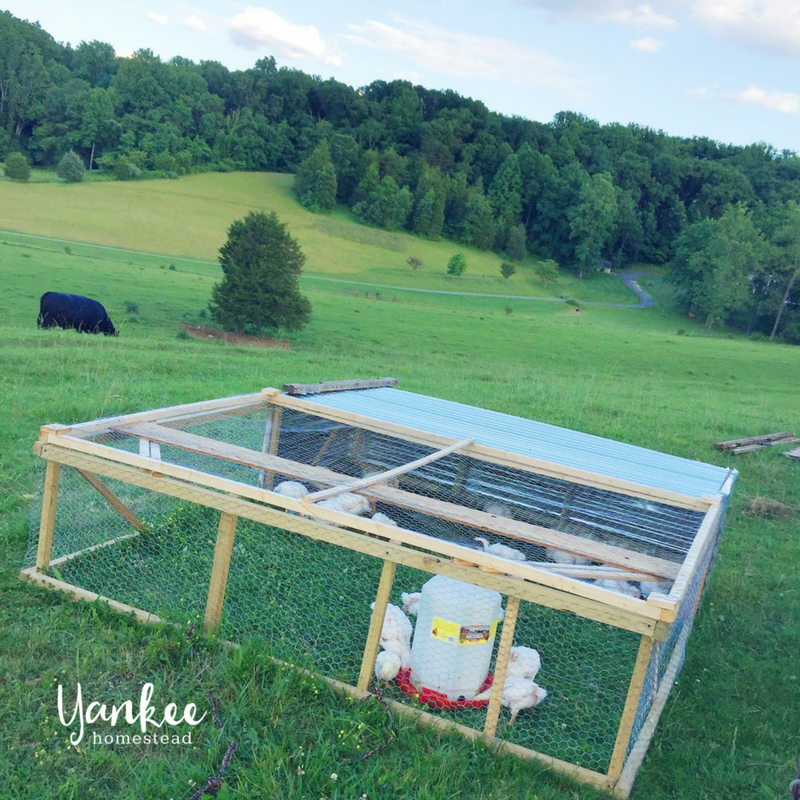
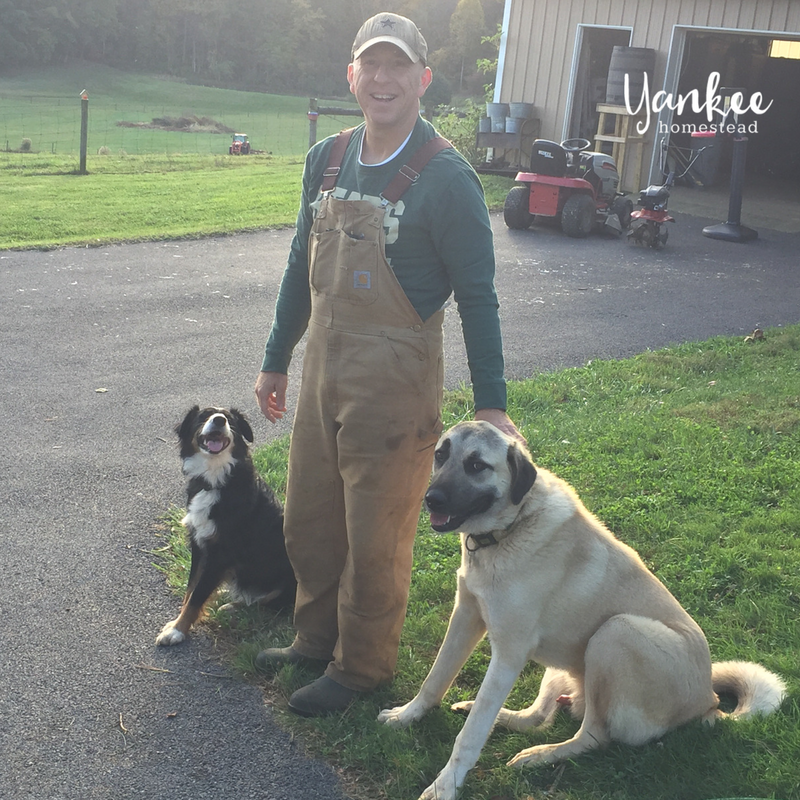


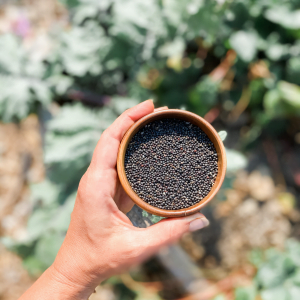
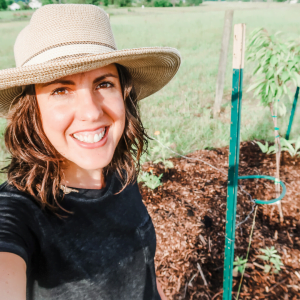
Leave a Comment